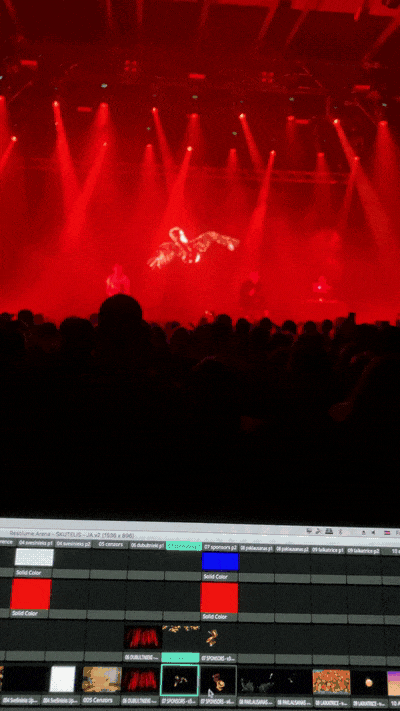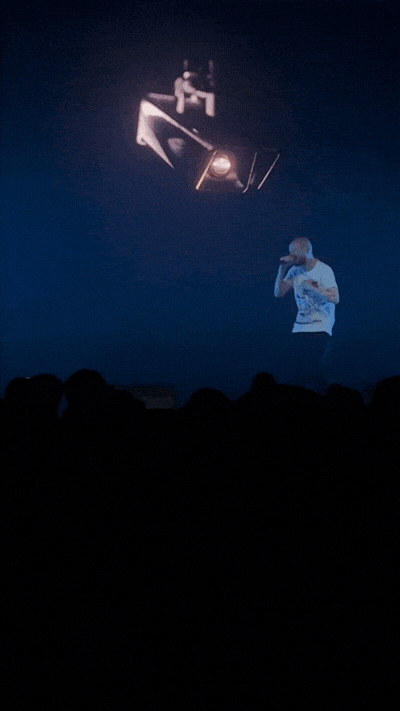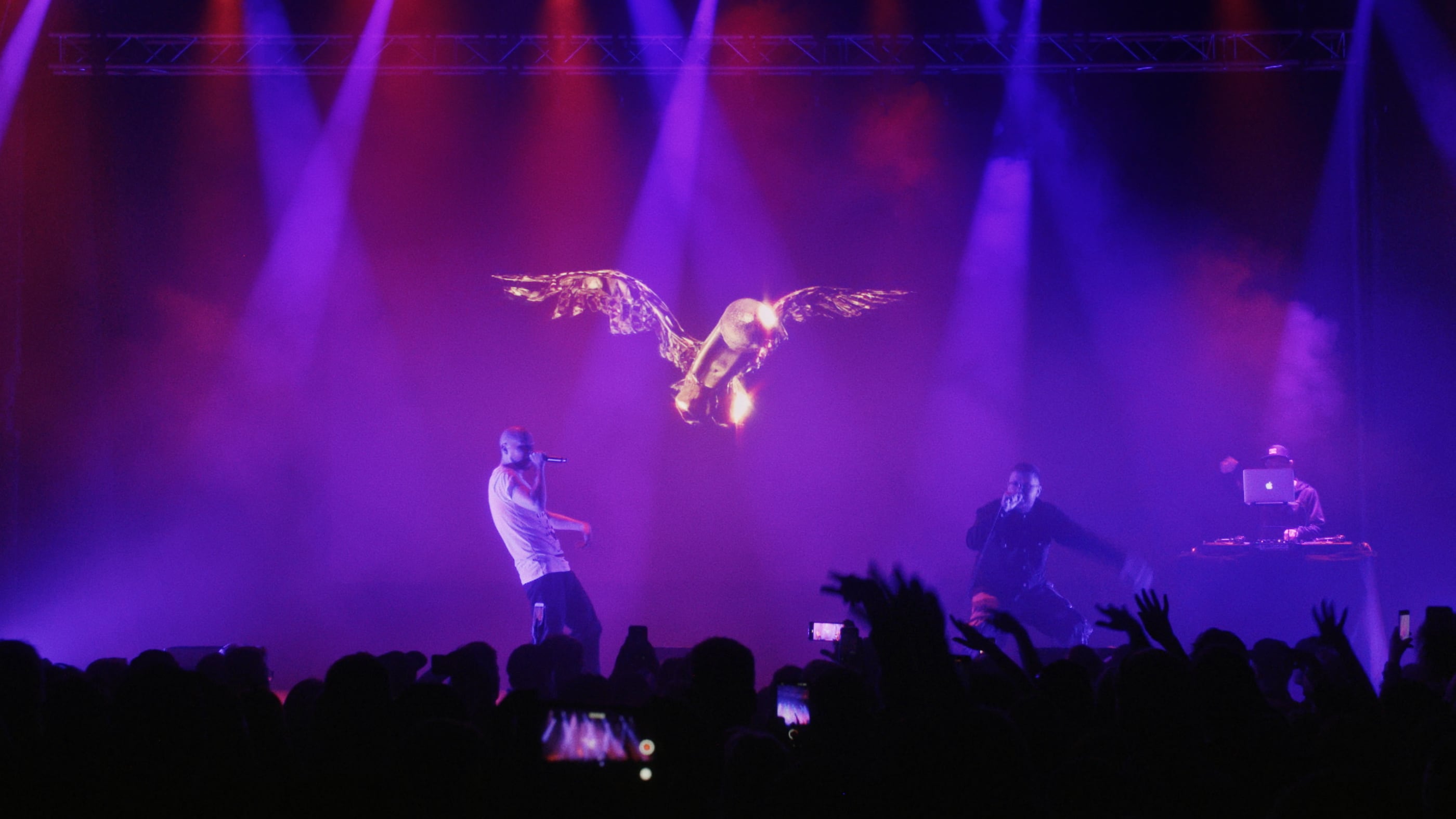Arturs Skutelis — Jā. Album Presentation
Live Music Visuals
For the second time we returned to Palladium Riga to put on a show for Skutelis’ new album Jā.
Teamed up with Emīls again, we created a unified visual package with some live interactive elements for the album’s 10 tracks that made up the first half of the show. And did some bangers for the more free flowing second part too.
Teamed up with Emīls again, we created a unified visual package with some live interactive elements for the album’s 10 tracks that made up the first half of the show. And did some bangers for the more free flowing second part too.
Work
Art direction, motion graphics
Venue
Palladium Riga
Lead collaborators
Directon - Arturs Skutelis
Design, shoot - Emīls Kālis
Lighting - Justs Ribinickis
Art direction, motion graphics
Venue
Palladium Riga
Lead collaborators
Directon - Arturs Skutelis
Design, shoot - Emīls Kālis
Lighting - Justs Ribinickis
Live









Frames













































Full set
Credits
00 Intro —— Emīls Kālis
01 Kustība —— Kristaps Kazaks, Emīls Kālis
02 Bēgums —— Kristaps Kazaks, using “The Wedding Dance” by Pieter Bruegel the Elder (1566)
03 Diference —— Emīls Kālis, using “The Fall of the Rebel Angels” by Pieter Bruegel the Elder (1562)
04 Svešinieks —— Emīls Kālis
05 Cenzors —— Emīls Kālis
06 Dubultnieki —— Kristaps Kazaks
07 Sponsors —— Kristaps Kazaks, 3D model by AnPush
08 Pakļaušanās —— Kristaps Kazaks, 3D model by Myles Zhang
09 Laikatrīce —— Kristaps Kazaks, using “Autumn Foliage” by Tom Thomson (1915)
10 Atā —— Kristaps Kazaks, using “Death and the Miser” by Hieronymus Bosch (ca. 1490)
01 Kustība —— Kristaps Kazaks, Emīls Kālis
02 Bēgums —— Kristaps Kazaks, using “The Wedding Dance” by Pieter Bruegel the Elder (1566)
03 Diference —— Emīls Kālis, using “The Fall of the Rebel Angels” by Pieter Bruegel the Elder (1562)
04 Svešinieks —— Emīls Kālis
05 Cenzors —— Emīls Kālis
06 Dubultnieki —— Kristaps Kazaks
07 Sponsors —— Kristaps Kazaks, 3D model by AnPush
08 Pakļaušanās —— Kristaps Kazaks, 3D model by Myles Zhang
09 Laikatrīce —— Kristaps Kazaks, using “Autumn Foliage” by Tom Thomson (1915)
10 Atā —— Kristaps Kazaks, using “Death and the Miser” by Hieronymus Bosch (ca. 1490)